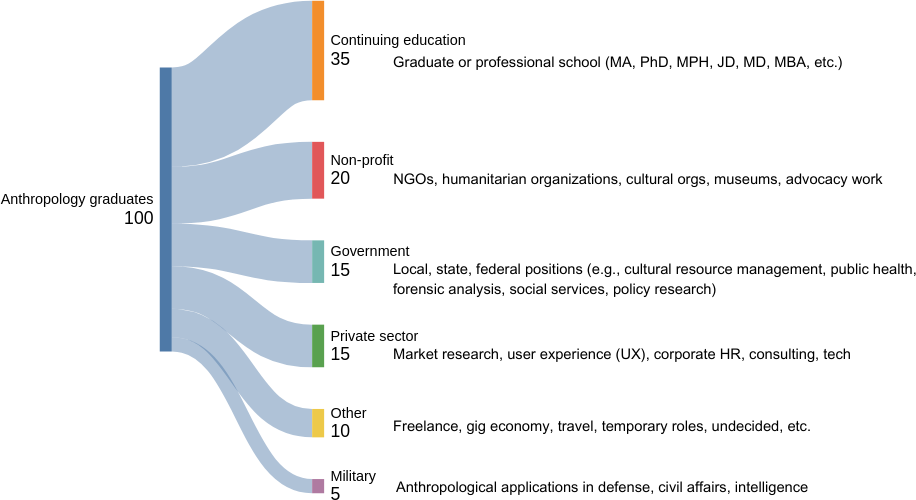
Careers in Anthropology
JMU Anthropology students pursue career paths according to their interests.
During their time at JMU, students in Anthropology develop their own career interests that reflect not only what they are learning with their professors but also their growing interests in the world around them. Our students are self-selecting and self-starters. They have clarity of purpose and are highly motivated to learn and gain new skills. JMU Anthropology has a 95% alumni satisfaction rate!
Anthropology students enjoy broad career flexibility, an asset in a fast-changing world where most people switch careers multiple times.
Anthropology provides a broad and solid foundation on which to build a specialization that can be both impactful and well-compensated. The American Anthropological Association raises some possibilities:
- Anthropology + Technology = User-Experience (UX) Researcher, Geographic Information System (GIS) Specialist
- Anthropology + Medicine = Public Health Analyst, Clinical Researcher, Physician
- Anthropology + Business = Consumer Market Researcher, Strategic Insights Consultant
- Anthropology + Biology = Forensic Anthropologist, Anthropometrist, Zoologist
- Anthropology + Environmental Science = Climate Scientist, Policy and Compliance Evaluator
- Anthropology + Linguistics = Natural Language Processing Expert, Machine Learning Engineer
- Anthropology + Archaeology = Cultural Resource Management Principal Investigator, Historic Preservation Planner
- Anthropology + English = Librarian, Editor, Writer
- Anthropology + Art History = Curator, Archivist
- Anthropology + Theatre = Filmmaker, Set Designer
Well over 300,000 people in the U.S. hold a Bachelor’s degree in Anthropology, including around 800 graduates from James Madison University since 2000. Fewer than 5% work as formal “Anthropologists” or “Archaeologists”--roles that account for just 8,700 positions nationwide (Bureau of Labor Statistics).
Because of this, Anthropology majors are encouraged to explore a wide range of career paths, as shown on this page and in the ACRN flyer. Many pursue advanced degrees, leading to significantly higher mid-career earnings.
Thanks to a rigorous, interdisciplinary curriculum, Anthropology majors perform well on exams like the LSAT, MCAT, GMAT, and GRE. Below is a visualization of common early career paths (within six years of graduation):








